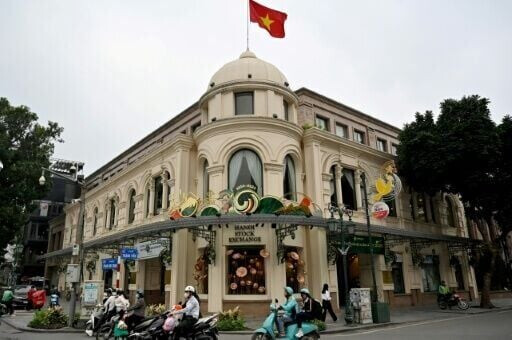
President Donald Trump announced a trade agreement with Vietnam last Wednesday (local time), which presents a complex equation for the Vietnamese economy. In April, the Trump administration's tariff threats severely impacted US importers with manufacturing bases in Vietnam, including those in apparel, furniture, and toys. While the immediate tension has eased with this agreement, the persistence of high tariff rates means companies' anxieties are far from resolved.
Mixed Market Reactions: From Jubilation to Disappointment
When President Donald Trump first announced the trade agreement with Vietnam via social media, the market rejoiced. Share prices of companies with production facilities in Vietnam, such as Nike, Lululemon, and Deckers Brands, surged simultaneously. This was driven by the expectation that the ongoing tariff uncertainties would be resolved.
However, just 19 minutes later, the situation rapidly changed when President Donald Trump revealed the specific details of the agreement. Share prices of Vietnam-related companies immediately reversed course, with many turning negative. As investors began to scrutinize the agreement's contents, share prices slowly started to recover, but the extent of recovery varied for each company. These immediate market reactions clearly illustrate the complex calculations companies are making in the new trade environment.
The Core of the Agreement: 20% and 40% Tariffs
The core of this agreement is the imposition of a 20% tariff rate on all goods produced in Vietnam and imported into the US, and a 40% tariff rate on goods transiting through Vietnam from a third country to the US.
This is more than double the previous provisional tariff rate of 10%, making it a clear negative for US importers. Considering that Vietnamese products could have been subject to tariffs of up to 46% before the Trump administration suspended tariff imposition in April, there's a positive aspect in that this agreement avoided the worst-case scenario of a 46% high tariff rate coming into effect next week. However, the increase from 10% to 20% is still expected to increase cost burdens for businesses.
Analysis of Major Companies' Stock Price Trends
Nike's stock price surged on Wednesday morning before reversing course, but ultimately closed up 4.1%. This can be attributed to the combined impact of the trade agreement news and positive earnings reports released last week. Nike's stock price has now surpassed the level it was at on April 2nd, when it plummeted nearly 15% due to tariff news.
Lululemon, another apparel manufacturer with significant production in Vietnam, rose then turned negative before closing up 0.5%. However, it remains approximately 13% down compared to April 2nd.
Deckers Brands' stock chart on Wednesday showed a similar pattern to Lululemon. It surged 3.5% on President Donald Trump's initial agreement announcement but ultimately closed up 0.8%.
Unfinished Calculations: Investors' Ongoing Deliberation
In conclusion, investors appear to be still deliberating how truly significant this "agreement" is for companies highly exposed to Vietnam. The increase in tariff rates from 10% to 20% is clearly a burden, but there's also a coexisting sense of relief from avoiding the worst-case scenario of a 46% tariff taking effect. This becomes an even more complex issue given Vietnam's emergence as a key alternative in the global supply chain after the US-China trade conflict. In the long term, companies are expected to need in-depth consideration of supply chain reorganization and diversification strategies for production bases.
[Copyright (c) Global Economic Times. All Rights Reserved.]




























